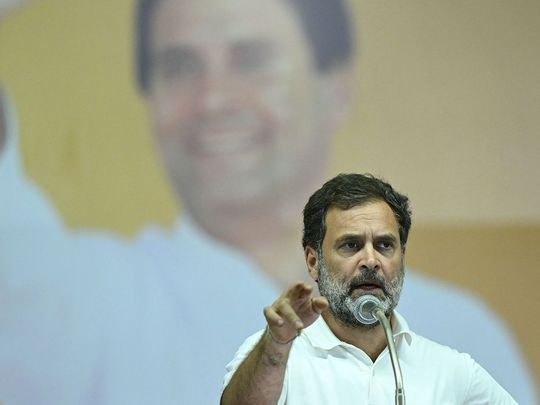
India’s political landscape has experienced a seismic shift following the recent national elections. The once fragmented and weak opposition has made a surprising comeback, challenging Prime Minister Narendra Modi’s Bharatiya Janata Party (BJP) and altering the dynamics of Indian democracy.
The emergence of Rahul Gandhi as a formidable opposition leader and the formation of the opposition coalition, named INDIA, have reinvigorated the democratic process in India. This new political development will surely benefit India’s struggling democracy.
For years, India’s opposition was seen by political commentators and projected by the Indian media as weak and divided to mount a significant challenge against the BJP. However, the recent elections have changed this perception dramatically.
The INDIA alliance, led by the Congress party under Rahul Gandhi, won 232 out of 543 seats, significantly reducing the BJP’s seats and preventing it from achieving a simple majority. This outcome has forced Modi to rely on ‘secular’ coalition allies to govern, potentially altering his governance style.
Opposition’s resurgence
Rahul Gandhi’s transformation from a ridiculed politician to a powerful opposition leader has been central to this political shift. His cross-country marches against Modi’s politics, known as the Bharat Jodo Yatra and Nyay March, resonated with the voters, particularly on issues like unemployment, inequality, and saving India’s constitution.
These efforts reinvigorated the grand old Congress party and played a significant role in the opposition’s resurgence. Gandhi’s ability to connect with voters and address their concerns has revitalised the opposition and provided a credible alternative to the BJP.
The opposition’s success in the recent elections marks a significant shift in voter priorities. The BJP’s strategy was less effective than anticipated. Even the upper-caste BJP candidate from the constituency where Ayodhya is situated lost to a Dalit opposition candidate.
With the opposition gaining substantial ground, particularly in BJP strongholds like Uttar Pradesh, where they won 44 out of 80 seats, Modi’s administration will need to be more responsive to the needs and concerns of the populace. The election results empower regional parties and states.
A strong opposition is essential for maintaining checks and balances in a democracy. The recent election outcome has ensured that the BJP cannot govern unilaterally. Modi will have to negotiate with coalition partners and consider the opposition’s viewpoints, leading to more balanced and inclusive policymaking.
The presence of a robust opposition in the Parliament will enhance legislative efficiency in India. The opposition’s critical examination of proposed laws will ensure that they are thoroughly debated and refined, leading to more effective and well-rounded legislation. This scrutiny will help address potential flaws and ambiguities, resulting in a legal framework that better serves the diverse needs of Indian society.
Hallmark of a stable democracy
Democracy is not just about the rule of the majority but also about protecting the rights and freedoms of minorities and dissenting voices. The opposition’s resurgence under Rahul Gandhi’s leadership plays a crucial role in safeguarding these democratic values.
The opposition’s success in the recent elections has stimulated public interest and engagement in political processes. By presenting alternative viewpoints and mobilising public opinion on various issues, the opposition encourages citizens and civil society activists to participate more actively in democratic processes.
This heightened engagement is essential for creating a more vibrant and participatory democracy where the government remains attuned to the aspirations and concerns of the people.
One of the hallmarks of a stable democracy is the peaceful transition of power. The opposition’s emergence as a credible alternative ensures that power transitions occur smoothly and democratically in the future.
This new dynamic will benefit India’s democracy by ensuring checks and balances, enhancing legislative efficiency, protecting minority rights, safeguarding democratic values, stimulating public engagement, and facilitating peaceful power transitions.
As India moves forward, the strengthened opposition under Rahul Gandhi’s leadership will play a crucial role in holding the government accountable and promoting a more inclusive and balanced approach to governance.
The electorate’s preference for addressing pressing local concerns signal a shift towards a more people-centric political environment. This development is a positive step towards strengthening India’s democracy and ensuring that it remains vibrant and resilient in a rapidly polarising world.









